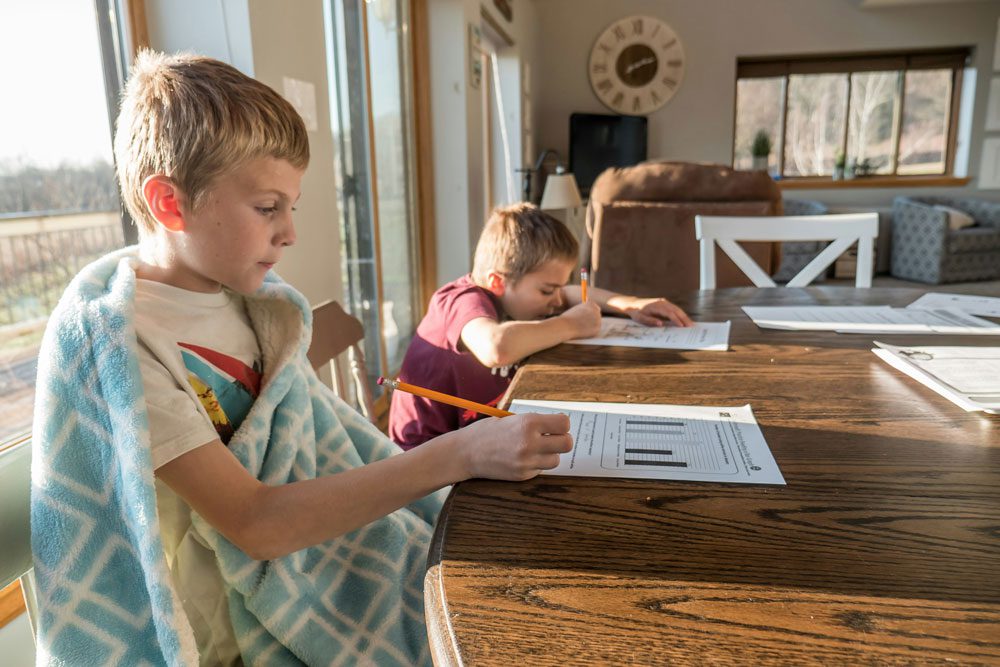As parents, we want what is best for our child, but it can be hard to know exactly what to do. You’ve taken an interest in your child’s education and hired a tutor as additional support, either to help them catch up or to challenge them to extend their knowledge… so what now? Many parents wonder what else they could be doing to support their child’s learning at home. The good news is that the solution does not require you to buy expensive workbooks and programs. There are several small tweaks you could make to your family routine that can help your child’s learning.
Spend 5 Minutes at the End of the Session Debriefing with Your Tutor
Your tutor might have to rush off to another session as soon as your session ends, but you can build a five-minute debrief into each lesson to review what your child has worked on and what you can do to help. If you’re doing thirty-minute lessons, see if your tutor is open to running a twenty-five-minute lesson and then spending five minutes chatting with you. This way they can explain the skills they have taught, what your child needs practice with, and how you can support them. These few minutes can be invaluable in ensuring you know exactly what your child is doing and will help you to seize opportunities to ask them about it, support them when they need help, or seek chances to practice.
Look for Everyday Opportunities to Practice Skills
This is perhaps the most important thing you can do as a parent when it comes to your child’s education. Learning does not only take place while sitting down in allocated lessons. Children are learning all the time, and seeing how their learning fits into their everyday life helps them generalize skills, gives them a broader understanding of concepts, and helps key knowledge sink in.
Try this: At the supermarket, can your child help you count the tomatoes as you put them into a bag? Can they read the number on the price tag in dollars and cents? Can they compare two jars of pasta sauce and determine which one is taller, wider, or more expensive? Can they read the labels to see if the box of cookies contains ginger? Can they predict how many steps until you get to the register? Can they guess which section the yogurt might be in based on categories?
At the park, how many steps are on the ladder up to the slide? Can they spot something starting with the letter S? If they roll a ball and a piece of bark down the slide at the same time, which one might hit the bottom first? Our world is brimming with learning opportunities for children. Challenge yourself and your child to find them.
Liaise with Your Child's Teacher and Tutor to Ensure Consistency
There are many ways to teach a skill. For example, subtraction can be taught by counting backward, but can also be taught by adding on to the smaller number. You could use a tens frame, counters, cubes, or your fingers. While for some kids, having multiple options is great, other children might find this confusing. You can support your child by acting as a liaison between your child’s teacher and tutor.
Try this: Ask your child’s teacher what they recommend your child learns, if they have a particular method they would like them to use, and if there is a standardized practice that higher levels in the school use. Supplying your child’s tutor with this extra information can ensure your tutor creates a seamless transition between school and one-to-one sessions, avoiding confusion and helping your child streamline their learning. You could also ask your child’s teacher to provide feedback and suggest adjustments.
Set Your Child Up for Success in the Session (and at School)
As a parent or guardian, much of what we can do for our children’s learning lies outside of their lessons. Supporting your child to eat a nutritious meal before learning will help them retain information and stay focused. Ensuring they get enough sleep allows their brain to process new information and store it in long-term memory. Encouraging physical activity, such as outdoor play or sports, builds their overall health and helps their brain function at optimal performance levels. Keeping your child happy, healthy, and active can make a huge difference in their education.
Conclusion
While there’s no harm in sitting down with your child to do extra lessons or quizzing them on their times tables, it is certainly not the only way you can help them learn. By aiming to have clear communication with tutors and teachers, seeking opportunities for practicing skills, sparking curiosity as you go about your day, and doing your best to offer healthy meals, adequate sleep, and physical movement, you can go a long way in supporting your child to make the most out of their learning.
For more tips on supporting your child's learning, connect with primary school tutors on Learnmate.
This blog was written by Tahnee K, a highly sought after Primary School and VCE tutor for English, Literature, French and Media on Learnmate. Tahnee has over 15+ years experience teaching secondary English as well as special education primary.
You can view Tahnee's profile, including her rave reviews and, subject to her availability, request Tahnee as your tutor here.




